Does Sodium Make You Fat?
Yes….and no because it depends on a few variables and not in the way you think. The first thing you need to understand about sodium and whether or not it makes you fat is that this compound is essential for life. Sodium is an electrolyte that helps keep our bodies functioning and our muscles contracting properly. We need sodium to function on a daily basis. This goes double if you exercise on a daily basis. Depending on the duration of your exercise sessions and the intensity, you can sweat out a lot of sodium which can have an impact on muscular contractions.
However, that aside, does sodium make you fat?
Let me put it this way. Excess sodium will make you fat in a roundabout way and knowing how much sodium you are ingesting on a daily basis will determine if you get fat or not. I’ll be very honest here in determining if sodium makes you fat - Moderation is the key. Moderate sodium intake will not make you fat – Excess sodium intake on the other hand will set the environment and conditions which will make you fat.
Does excess sodium make you fat?
Excess sodium doesn’t metabolize into body fat like excess carbohydrates, protein and fats do. Excess sodium causes your body to retain more fluids which affects the way your body functions. Here’s what I tell my clients about excess sodium and whether or not sodium makes you fat.
Think of your body as a house and sodium as the doors (and door locks) to your house. When your body has excess levels of sodium the doors shut and they lock. There is no way to get anything out. It’s only a matter of time before things start to build up inside the house (your body). The only way to get things back to normal and to “clean your house” is to first eliminate all the junk that has accumulated inside your house, right? That means opening up all the doors and start moving things outside. The only way to do that is to unlock your doors and open the doors. By reducing your sodium intake to normal levels you will “unlock” all your bodies’ doors and allow things to open up. Doing so will allow your body to eliminate all the excess water and toxins that have built up and keeping your body from functioning properly.
You see, excess sodium causes your body to retain more fluid (at the cellular level) which causes your body to gain water weight WHILE putting up blocks to your weight loss goals. There are other health risks associated with high sodium levels such as high blood pressure which can have a bunch of nasty conditions such as heart failure, strokes, kidney problems and a whack of others.
How much sodium do you need?
I suggest that you have no more than 2 grams of sodium per day. Don’t go under 500 milligrams per day because your muscles will start to cramp up from lack of sodium. For those people who have low blood pressure, this advice DOES NOT apply. You need to talk to your medical professional about dietary needs for low blood pressure.
Here’s the problem and why sodium makes you fat (excess sodium)
All packaged foods contain way too much sodium per serving. Let’s face it, the modern western diet is filled with sodium laced preservatives which causes us to ingest way too much sodium. Foods that we often think are somewhat “healthy” are the worst culprits. I bet if you took a look through your cup boards you will find packaged foods laced with sodium.
Here is one of the worst culprits when it comes to answer the question, does sodium make you fat?
Instant noodles
Without a doubt, this is one of the worst high sodium packaged foods that most of us will have in our cupboards. Here’s the funny thing about these types of packaged foods. We tend to think these types of soups are somewhat “healthy”. Nothing can be further from the truth. I know, they’re super easy to make and cheap but they’re like that for a reason. They may be cheap and easy to make but they have one of the highest counts of sodium per serving than any other food. Take a look:
Instant noodles (soup) by Sappora Ichiban
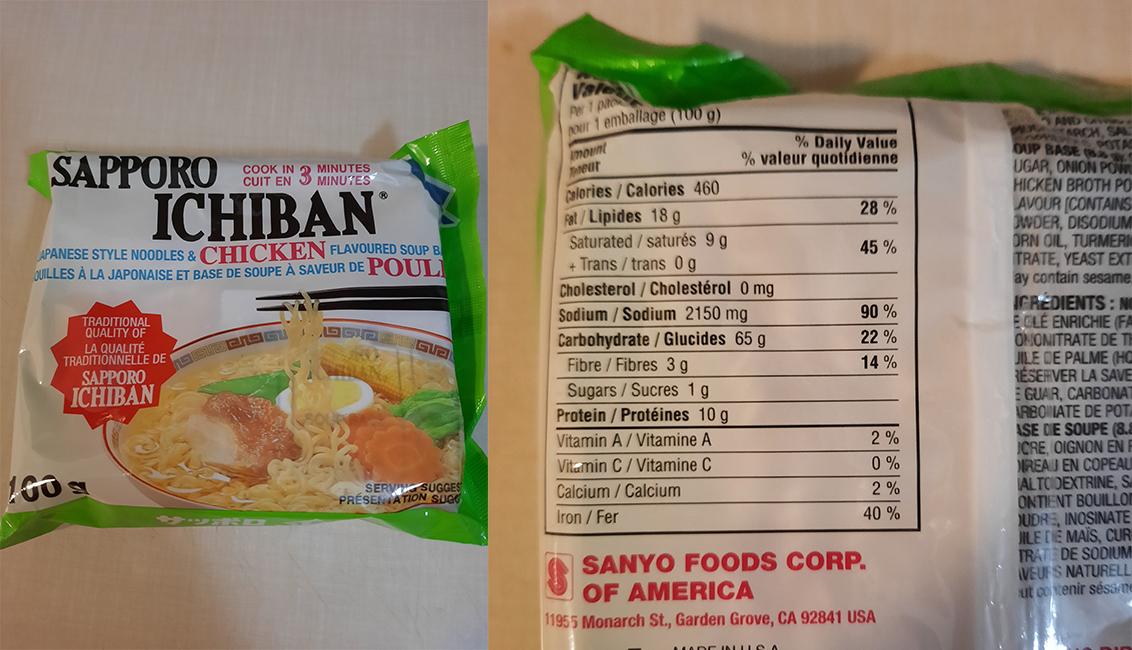
If you take a look at the sodium levels for Sapporo Ichiban noodles it is a whopping 2,150 mgs per serving! That is over the recommended daily sodium allowance for women!! For one serving!!! This is way too much and something that will keep your weight on (or gain weight) and keep you fat.
Instant noodles (soup) by Mr. Noodles
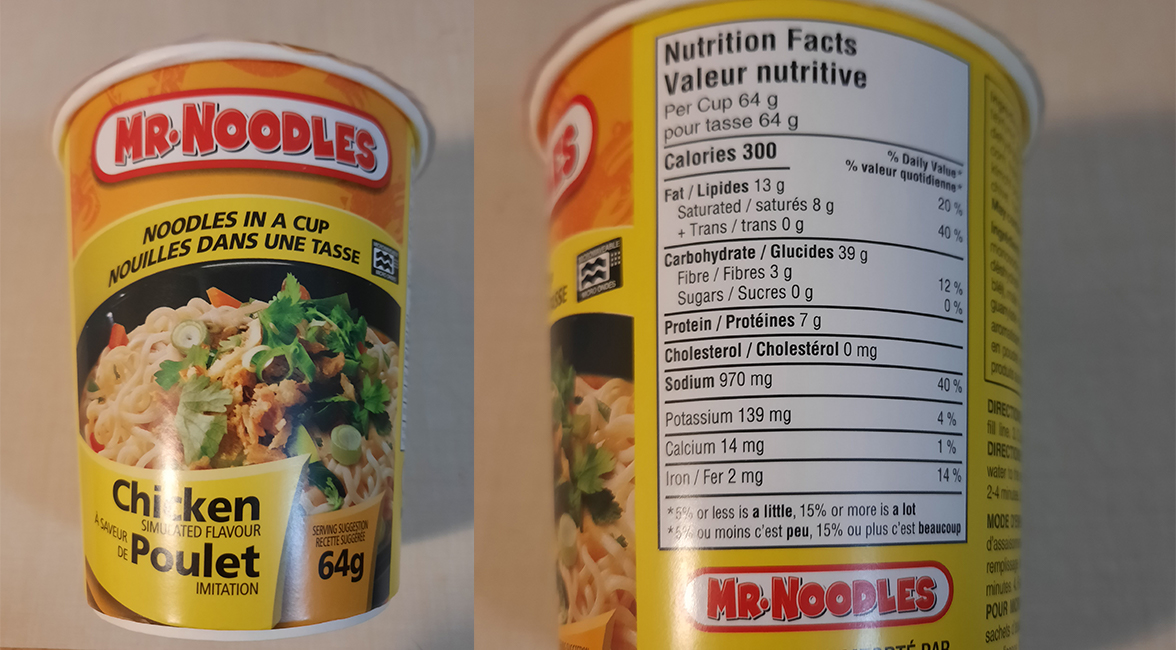
Mr. Noodles isn’t as bad but it is still way too much sodium per serving. At 970 milligrams per serving Mr. Noodles contributes to half of the daily recommended sodium intake per person. This will keep you fat and keep your bodyweight on. If you’re trying to lose belly fat and drop body weight, this food will not help. I know, we all love our instant noodles but trust me, if you’re trying to get healthy, lose weight and drop body fat these foods will not help.
Be wary of sauces as well….
Pasta sauces are loaded with sodium. The serving size is usually very low and if you take a look at the average pasta sauce it is usually very high with a low serving size. Take a look at the image below. At ½ cup, this pasta sauce contains 500 milligrams of sodium. Who has only a ½ cup of pasta sauce? Nobody does. At the very minimum most people will have one cup of pasta sauce.
Ragu Pasta Sauce
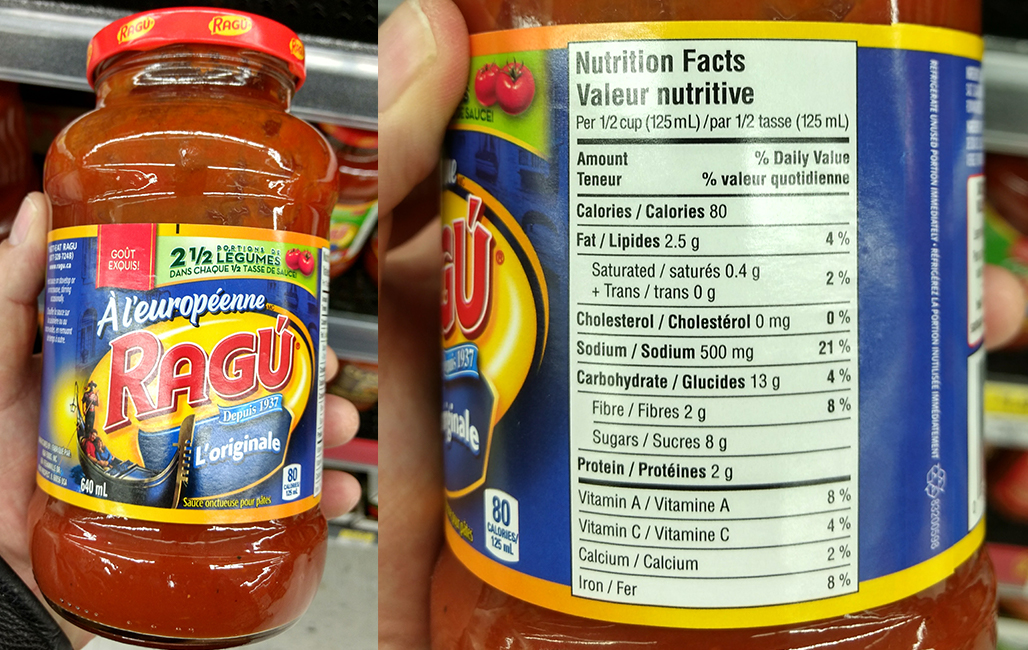
At 500 milligrams per half a cup, this is way too much sodium considering most people will have at least 1 cup of pasta sauce with their spaghetti. Not good.
Here's a video on these foods and why you need to avoid them at all costs!
Read food labels
When we look at food labels the first thing we tend to look at are calories. If it looks good chances are we tend to add it to our grocery cart. Do you want to know what I look at first? It’s the sodium. If the sodium looks good I will check out the calories. I suggest you do the same. My recommendation is to look for foods that are less than 200 milligrams of sodium per serving. You don’t want any more than 200 milligrams per serving.
Even foods that we think are healthy are not as healthy as we think. Take a look at some of the labels from these “healthy” foods.
Canned mixed vegetables by Green Giant
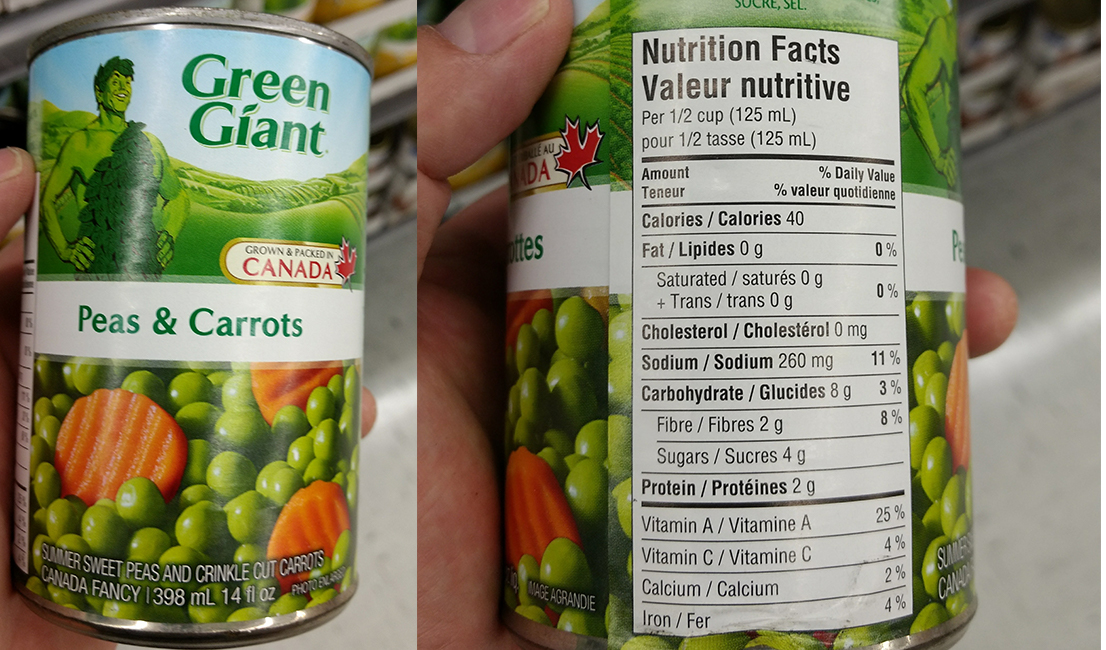
I would tend to think vegetables are healthy but the canned variety uses sodium to keep the vegetables from spoiling. One serving (half a cup) is a little too high at 260 milligrams and considering most people will have at least 1 cup of vegetables the sodium count is too high for one cup (520 milligrams).
Even cottage cheese is a little too high! Check it out.
2% cottage cheese by Nordica
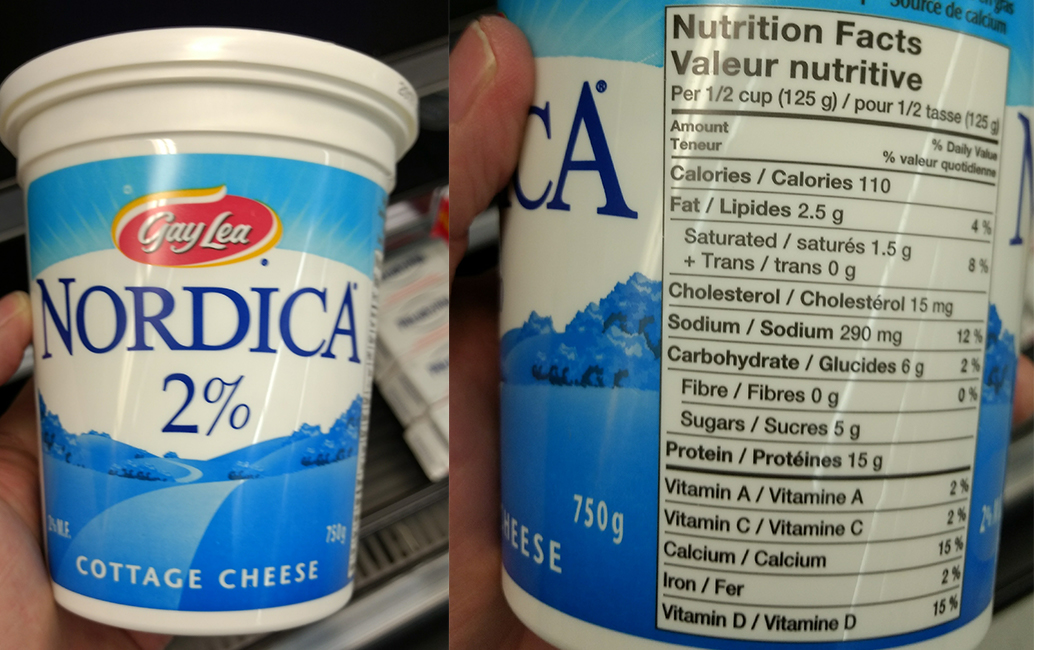
We all tend to think cottage cheese is “diet food” or “health food” but the sodium is a little too high at 290 milligrams per ½ cup serving. Considering most adults will have a 1 cup serving of cottage cheese, there is way too much sodium at 580 milligrams.
When it comes to reading labels you need to look at it in terms of how much you need for your goals. 200 milligrams is usually my maximum sodium count per serving. Any more than 200 milligrams per serving may contribute me to go over and above my sodium limit for the day.
Here are just a few examples of common food items that are below 200 milligrams of sodium per serving.
Green Giant frozen mixed vegetables
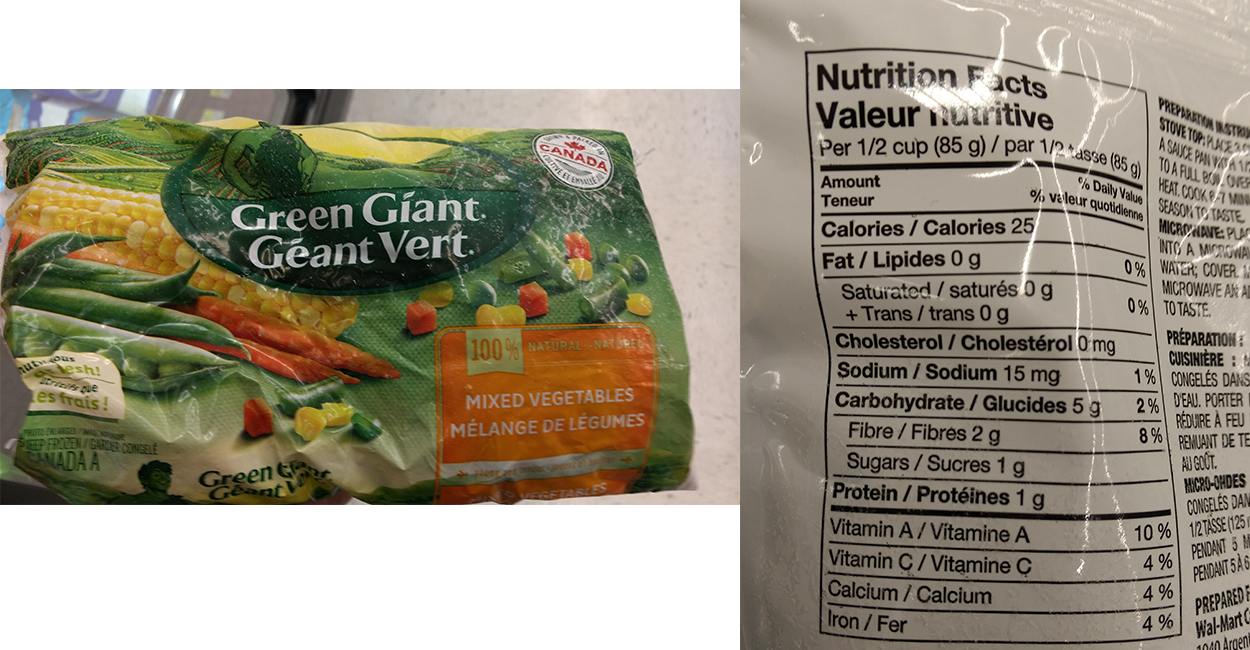
These frozen vegetables are a much better choice than canned mixed vegetables. The sodium count per serving for these mixed vegetables is 15 milligrams per half cup compared to 260 milligrams per half cup for canned vegetables. The next time you are at your grocery store, ditch the canned vegetables and go with the frozen vegetables (or fresh vegetables).
Kashi granola bar - Honey almond flax
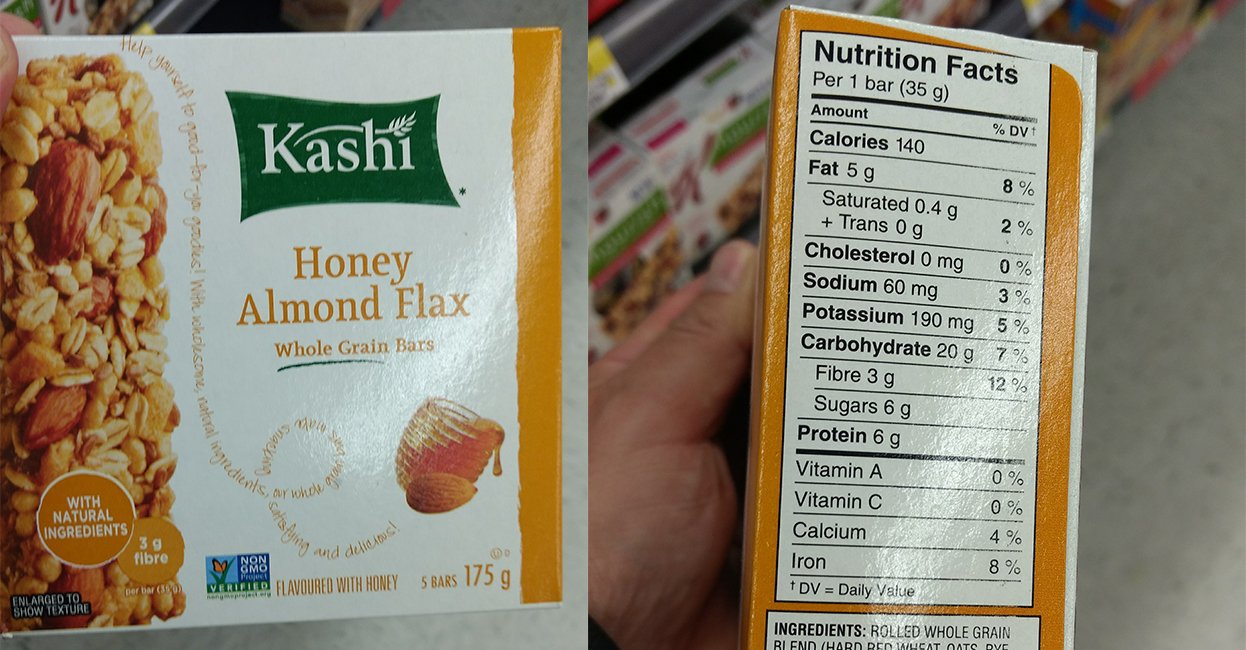
These snack/granola bars fit the bill for a snack. They may be a little high in terms of carbohydrates but that’s ok, as long as it’s within my carbohydrate range for the day. There is 60 milligrams of sodium per bar so that looks ok.
Kraft peanut butter
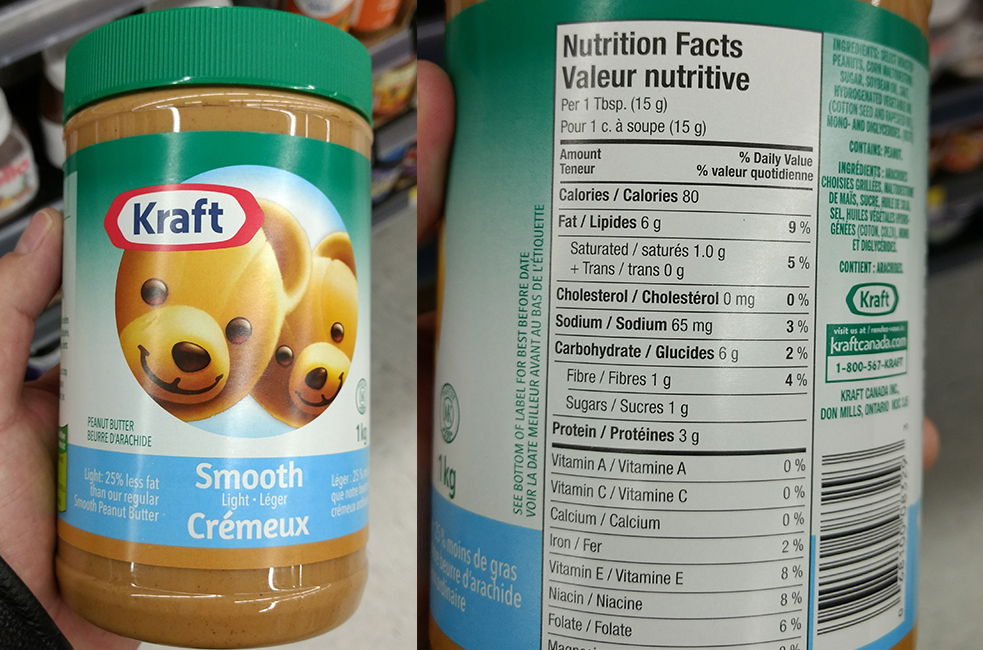
Peanut butter is a great snack. The above example has 65 milligrams per tablespoon and considering I have two tablespoons per serving, the sodium levels are within my acceptable range.
Does sodium make you fat…Ditch the salt shaker!
1 teaspoon of salt contains 2,360 milligrams of sodium. Chances are, if you are using a salt shaker to season your foods, you’re going to use way too much sodium.
Table salt
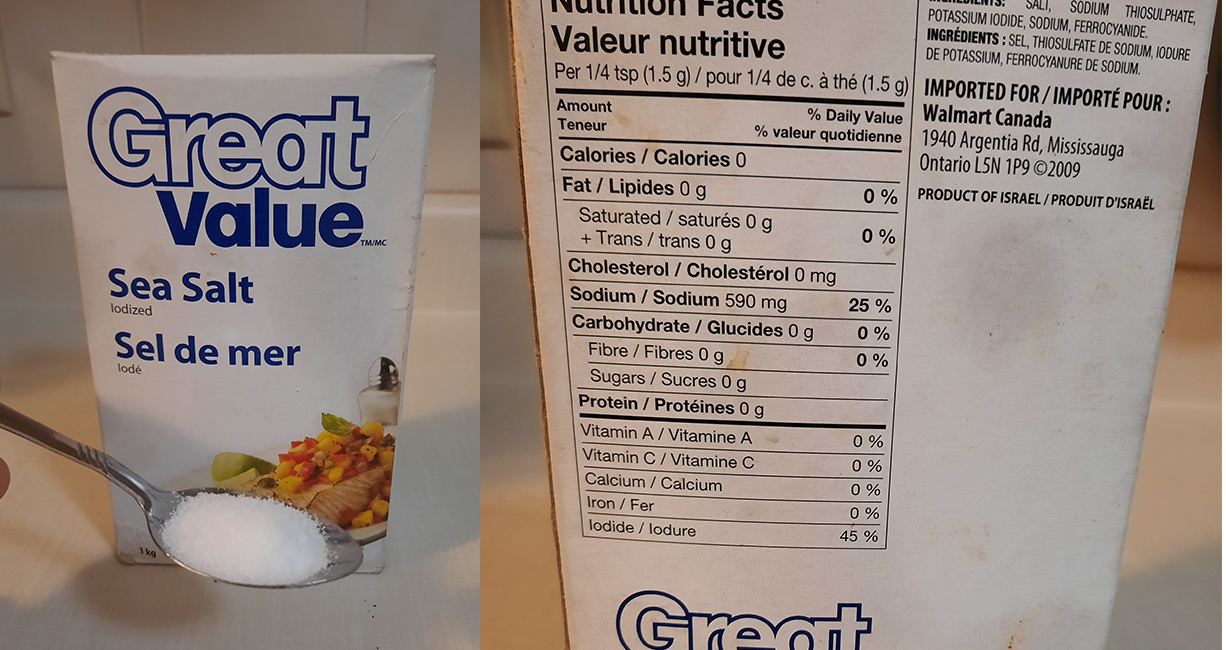
Take a look at how much sodium is in 1/4 teaspoon...590 milligrams! One teaspoon of salt has 2.3 grams of salt!!
My best suggestion is to ditch the salt and that goes for regular table salt and sea salt. It’s all sodium. The next time you are your grocery store, look for salt substitutes for regular salt and spices. For my salt substitute I prefer “Salt Free” by Windsor. It tastes just like salt but without any sodium (it uses potassium instead. I use this salt substitute to season everything including my proteins and vegetables.
3 Foods You MUST Avoid if You Want To Lose Weight and Belly Fat!
You can also use a hybrid salt substitute that uses different spices in addition to potassium. The one shown below is called “Herbamare” by Vogel and it is awesome. Adds more flavor to any dish. The last image are my staple spices from Mrs. Dash. I use Mrs. Dash on everything I cook including meats. Mrs. Dash doesn’t contain any sodium. I will usually mix in my salt substitute with the spices. Good stuff!!
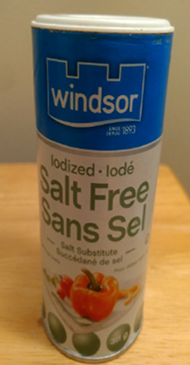
Salt substitute "Salt Free" by Windsor
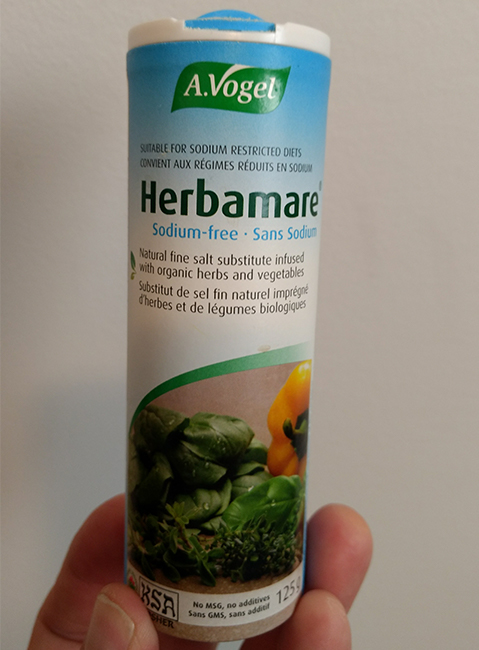
Salt substitute "Herbamare" by Vogel. Uses potassium as a salt substitute plus spices.
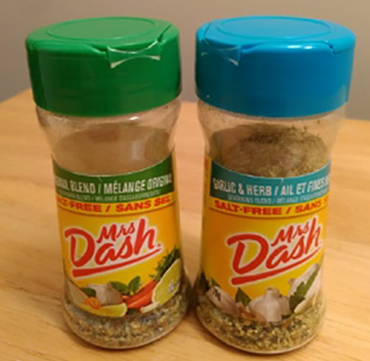
Salt free spices "Mrs. Dash" - Original blend and herb and garlic
Does Sodium Make You Fat? Conclusion
Sodium can make you fat, just not in the way excess calories, protein, carbohydrates or fats do. Excess sodium doesn’t metabolize into fat but it can cause you to gain weight in a roundabout way. Excess sodium causes you to retain water (and retain water weight) and it keeps water and toxins in your body which affects the way your body functions. Also, high sodium also contributes to high blood pressure which can cause a host of other problems such as heart disease, stroke, and kidney disease.
The one consideration you must take into account is if you have low blood pressure. This is a different story and you have to talk to your medical professional to determine what your correct amount of sodium is.
Now, I want you to read my story about how I gained 50 pounds in 7 months. We've all been there and believe me, I hated it but it's a story that you need to read. It will also show you what I did to drop those 50 pounds in 3 short months. Go here to read my story.
Here is the take away when answering the question, does sodium make you fat? Control your sodium and get it within acceptable levels everything else will fall into place including your weight. Trust me, once you get your sodium under control you will start to lose weight and feel a heck of a lot better! Get a calorie and sodium reduced meal plan and a simple daily exercise plan and you will lose weight safely and efficiently!
Check out our nutrition page here
Get the Belly Be Gone Keto Fit meal plan here
Get the Belly Be Gone Recipe book here
Here's a video on me answering the question....Does sodium make you fat?
Remember...Stay safe and stay Strong!!
Blake

Over his 30 plus years of experience, Blake Bissaillion has worked with nationally ranked body builders, power lifters and fitness professionals. In this time he has picked up volumes of applied knowledge that he openly shares with his clients. Mr. Bissaillion’s objective is to help as many beginners to weight training and fitness to achieve their weight loss and fitness goals while getting into their best possible shape. Mr. Bissaillion owns and operates Belly Be Gone, a fitness company that offers fitness and nutritional guidance and products.